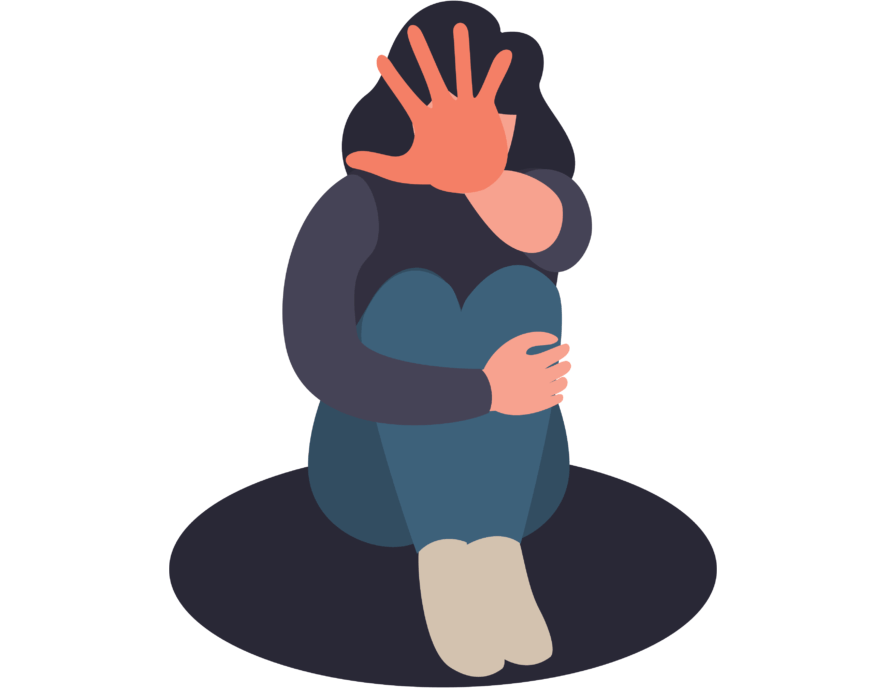By Helly Patel
The coronavirus pandemic has impacted the entire world in ways we have never experienced before, but the battle has been even more challenging for those impacted by domestic violence. In the United States, the numbers reported for victims who experience domestic violence are about more than 10 million every year (North). One of the pandemic’s major consequence is that it has enabled an environment that gives abusers increased control over survivors. Since the pandemic has begun, The National Domestic Violence Hotline has received an increasing number of reports of “abusers using the coronavirus as another excuse to isolate and harm family members” (North). In such times, survivors are forced to be restrained in the close parameters of their abusers. And in such containment, many are unable to reach out for help. Unfortunately, this issue has surpassed the borders. Australia, France, Germany, and South Africa, among others, are experiencing higher rates of domestic violence cases since the outbreak (Bettinger-Lopez and Bro).
As a result of the pandemic, organizations around the United States have “seen a troubling decline in helpline calls” (Kamdar). Saheli has seen a decrease in direct helpline calls from domestic violence survivors but an increase in referrals from law enforcement and the Department of Children and Families due to incidents with escalating violence. Working remotely, Saheli DV advocates have found it challenging to meet limited English speaking survivors needs since many services need face-to-face interactions. Nevertheless, Saheli is working hard to ensure that these needs can be met virtually by providing survivors with laptops and helping them navigate technology.
South Asian survivors, like most immigrant domestic violence survivors, are disproportionately affected by the economic crisis brought about by the pandemic. Without consistent and reliable childcare, no saved income, and no access to jobs, survivors are at the risk of being homeless and highly food insecure. The lifting of the eviction moratorium puts them at an increased risk of homelessness. Being on non-immigrant dependent visas, they are also ineligible for most public benefits.
Organizations like Saheli are having to adjust and find new ways to tackle the pandemic health issues along with providing vital and critical services for survivors. They have to keep up with the demand for increased financial assistance and supporting programs that would address the mental health of domestic violence survivors. With insufficient resources and survivors being in the sight and control of their abusers, domestic violence survivors in the country and worldwide are fighting two battles at once – the pandemic and abuse.
References:
North, Anna. “When Home Isn’t Safe: What the Coronavirus Pandemic Means for Domestic Violence Survivors.” Vox, Vox, 26 Mar. 2020, www.vox.com/2020/3/26/21193814/coronavirus-domestic-violence-shelters-covid-19-abuse.
Bettinger-Lopez, Caroline, and Alexander Bro. “A Double Pandemic: Domestic Violence in the Age of COVID-19.” Council on Foreign Relations, Council on Foreign Relations, 13 May 2020, www.cfr.org/in-brief/double-pandemic-domestic-violence-age-covid-19.
Kamdar, Bansari. “For These South Asian Women In The US, Lockdown Has Led To Increased Domestic Violence.” HuffPost India, HuffPost India, 8 May 2020, www.huffingtonpost.in/entry/coronavirus-lockdown-domestic-violence-south-asian-women_in_5eb3f5bfc5b652c56473766b.
Read more about the impact of Covid-19 on domestic violence here:
https://www.cnn.com/interactive/2020/10/world/coronavirus-impact-domestic-abuse-global/
https://www.cfr.org/in-brief/double-pandemic-domestic-violence-age-covid-19



